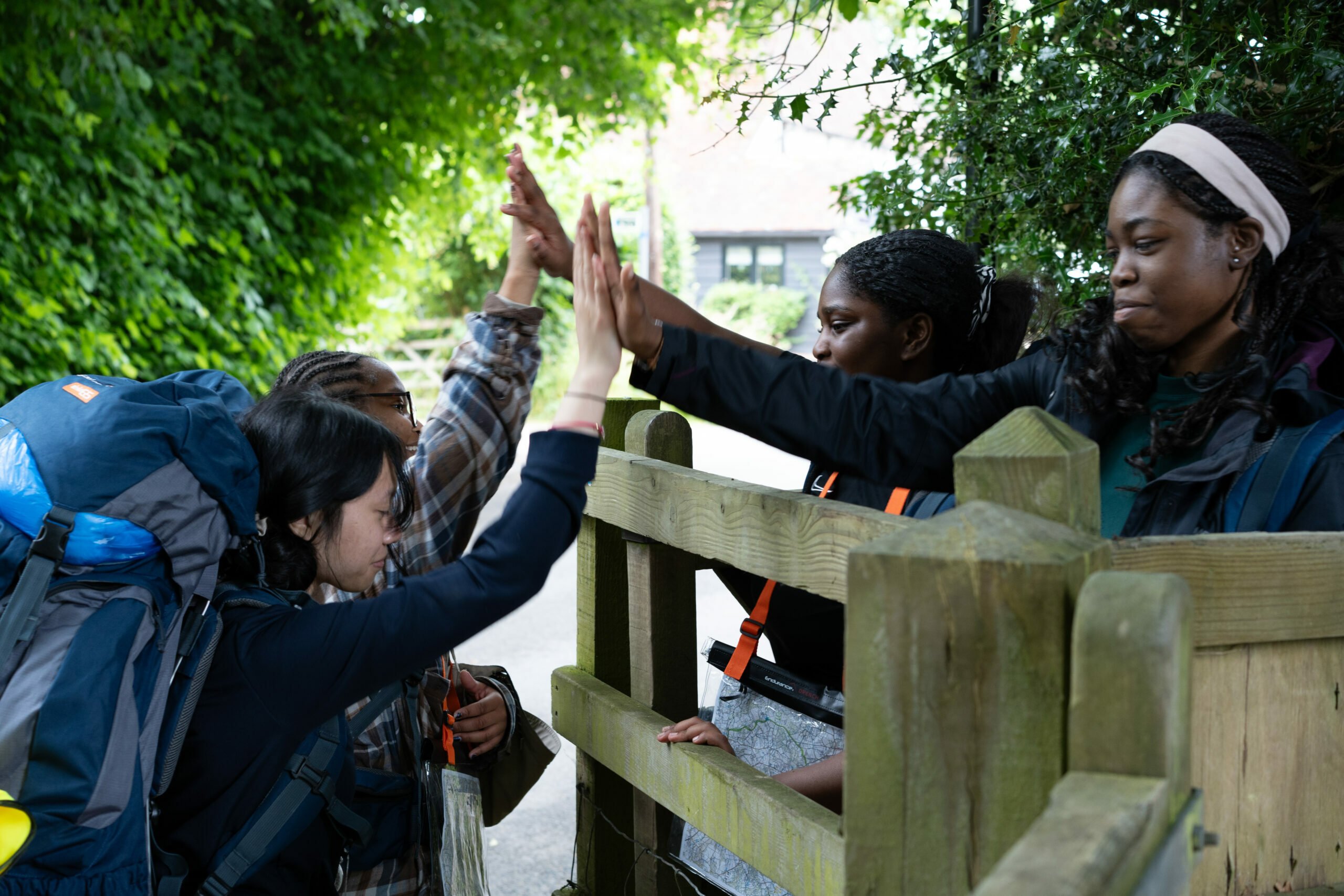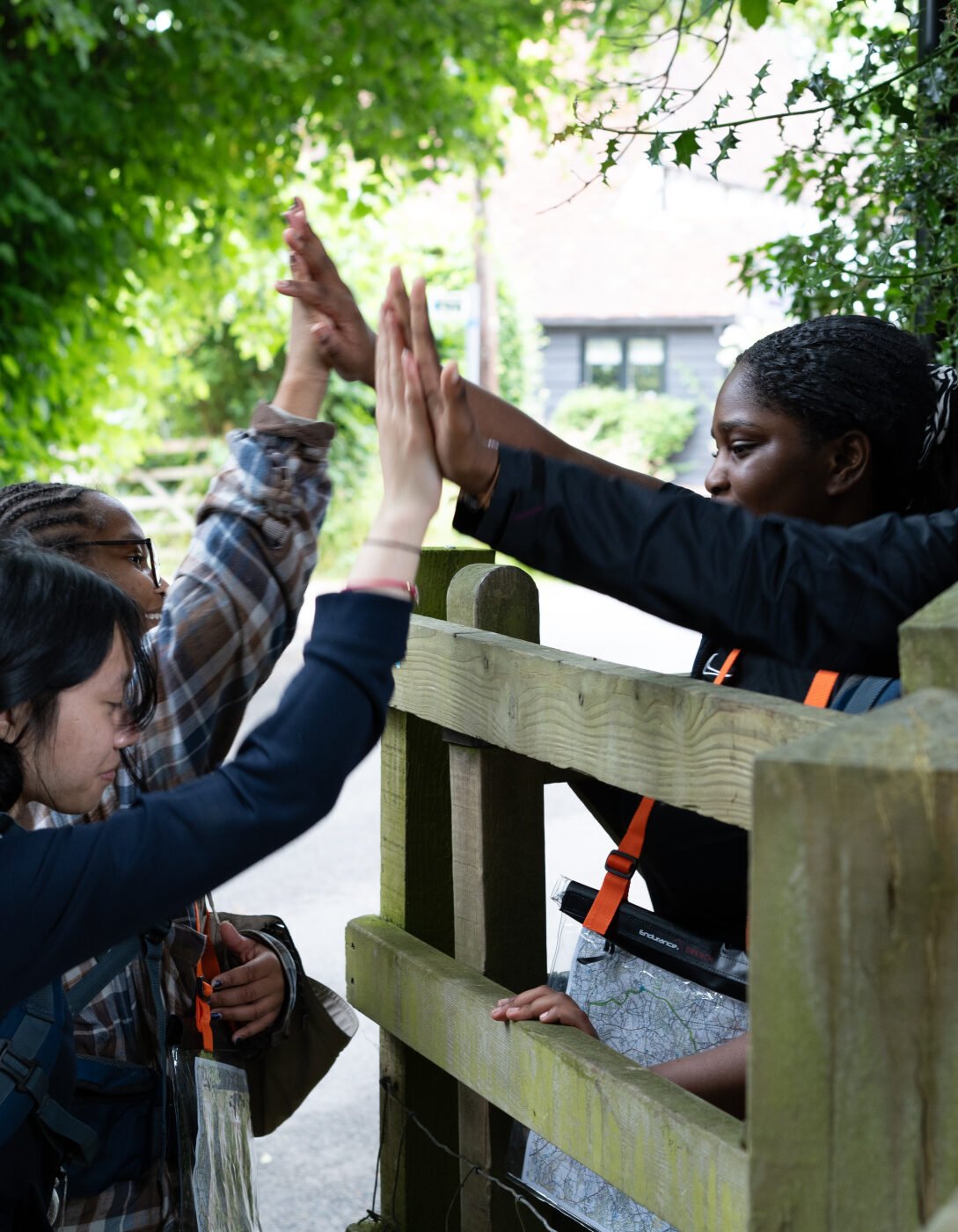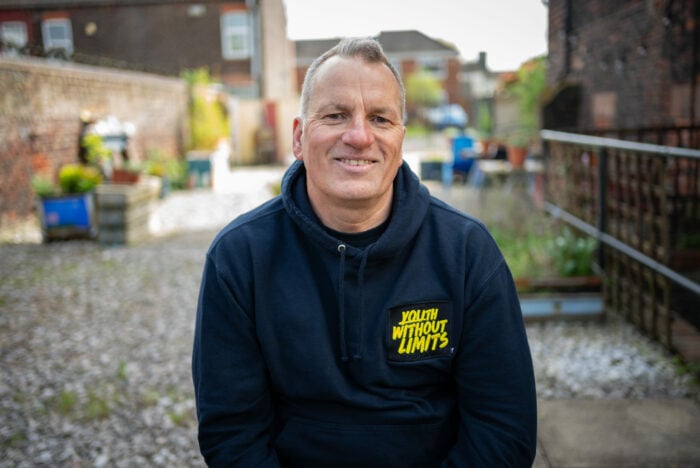

Running the DofE through a Community Group
Every year, the DofE inspires hundreds of thousands of young people from all walks of life to grow in confidence and develop the skills they need to successfully navigate life. We help them build lifelong belief in themselves, supporting them to take on their own challenges, follow their passions, and discover talents they never knew they had. The DofE is delivered in schools, colleges, community organisations, hospitals, prisons and more, all over the UK and internationally. Read more about the DofE here.
Why deliver the DofE through community settings
There are four sections to complete at Bronze and Silver levels and five at Gold. They involve volunteering time to help the community, becoming fitter and healthier, developing new skills, planning, training for, and completing an expedition and, for Gold only, working with a team on a residential activity. A DofE programme can often be built around activities already being delivered by community groups, meaning that young people can be recognised for their participation in activities already being provided.
The benefits of the DofE extend far beyond the Award itself. Participants develop leadership, teamwork, and resilience, skills that are highly regarded by colleges, universities, and employers. The programme provides a structured framework that fosters personal growth while encouraging young people to take on new challenges.
Our 2024 Impact Report shows young people who take part in the DofE experience positive impacts on their wellbeing, skills development, community ties and physical activity. The research shows statistically significant improvements in three out of four wellbeing measures: life satisfaction, happiness, and feelings of doing things in life that are worthwhile. Improvements in life satisfaction are higher for girls and young women, young people from minority ethnic backgrounds, and those who reported poor or fair health at the start of their DofE.
“Before DofE, I was in my shell. I didn’t go out, didn’t do activities. It opened my eyes to the opportunities out there.”
– Gold Award holder
Aspire 2 Inspire works with community members from the BAME, new and emerging communities, refugees and asylum seekers and families who are struggling financially in the Rochdale area. The young people they work with come from socio economically deprived areas. A lot of the young people they work with have never had the opportunity to do something like DofE and Aspire 2 Inspire are excited to be able to be able to offer the DofE. Watch more.
Delivering the DofE through community settings not only empowers young people to reach their full potential but also strengthens the role of community organisations as hubs of support, development, and opportunity. It is a win-win for young people and their communities, creating a ripple effect of positive change that benefits everyone involved.
By embracing the DofE, community groups can transform the lives of young people, help them achieve their goals, and ensure their work leaves a lasting legacy.
“The Halton Open Award at The Studio is a chance for young people to access DofE outside of the typical environments of schools. Some of the young people doing the Award with us weren’t actually accessing school and for some of them, school wasn’t the best experience. They needed a bit more support and I think that’s what we provide.”
– Barry, DofE Manager at The Studio
Holding a licence allows an organisation to offer the DofE programme to their young people. Licences are subject to review and Licensed Organisations need to demonstrate to the DofE that they understand the full implications of running DofE programmes. They have to be in a position to safeguard its aims and standards, to establish the necessary administrative framework to enable the programme to function and to ensure its continuity.
All organisations need to meet our minimum standards to hold a licence and so all Voluntary, Community and Social Enterprise Organisations (VCSOs) will undergo a due diligence check. For this, organisations will be asked to produce documentation that includes safeguarding policies and profit and loss accounts. We will review the information supplied alongside publicly available data. This process usually takes around a month.
Organisations will need to adhere to all the following criteria and to pass our due diligence process to hold a DofE licence:
Organisations are required to hold policies in line with minimum standards set out in a DofE licence agreement. The policies required include the following:
- Safeguarding policy that has been reviewed via our due diligence process
- Health and safety policy
- Insurance that includes a minimum of £5m against all liability for a single claim
- Equal opportunities policy
- Offsite visits policy.
Organisations must be an incorporated not-for-profit or VCSO that is working towards a “social purpose” i.e., being closely aligned with and striving towards social, political, or environmental causes.
The organisation must be one of the following not-for-profit or charitable types:
- Charitable Incorporated Organisations (CIOs) registered with the Charities Commission, Office of the Scottish Charity Regulator or Charity Commission Northern Ireland
- Charitable Companies, registered with both Companies House and the Charity Commission, Office of the Scottish Charity Regulator or Charity Commission Northern Ireland
- Community organisations who are Companies Limited by Guarantee (CLG) with no share capital and are registered with Companies House
- Community Benefit societies, regulated by the FCA
- Community Interest Companies (CICs) which are not established or conducted for private gain (any surplus or assets are used exclusively for the benefit of the community), limited by guarantee, and are registered with Companies House and the CIC regulator.
Organisations with other governance structure should contact us to discuss their eligibility.
There must be at least five Trustees or Directors for organisations registered within England and Wales, and three Trustees or Directors for those registered within Northern Ireland and Scotland, to ensure organisations are in line with statutory requirements and best practice. We will consider organisations with three or four Directors or Trustees in England, on a case-by-case basis.
Organisations will be required to produce annual accounts. Please note, we will ask for copies of your full profit and loss accounts plus a copy of your audit or independent examiners report, if available. These will be reviewed as a part of our due diligence process.
Organisations must have a bank account in the organisation’s name, with two or more unrelated signatories.
Organisations will be asked for copies of their safeguarding policies and a member of the prospective delivery team, who will be working directly with young people, will need to attend a short meeting to articulate their safeguarding processes and procedures in relation to their policies.
For further information on the above requirements, contact your local DofE office who can explain more about the DofE, our processes, and help you to apply for a licence via our due diligence process.
The Duke of Edinburgh’s Award (DofE) is a transformative programme that offers young people the chance to embark on a life-changing journey. It is an opportunity to have fun with friends, discover new interests and talents, and develop essential skills for life and work. Achieving a DofE Award is a prestigious accomplishment, widely recognised and respected by employers. The programme has supported generations of young people in successfully navigating the challenges of life.
To achieve their Award at each level – Bronze, Silver, and Gold – participants must complete four key sections: Volunteering, Physical, Skills, and the Expedition. At the Gold level, there is an additional Residential section, which involves spending time away from home with a group, contributing to a shared project or activity.
Your organisation may already be running activities that align with and can count towards one or more of these sections. This makes it easier to integrate the DofE programme into your existing offerings.
To assist with programme delivery, the Resources Centre and Delivery Toolkit provide a variety of downloadable materials. These resources are designed to help you organise and run the DofE programme effectively within your organisation.
The Expedition section, in particular, aims to inspire young people to develop initiative, teamwork, and a spirit of adventure. Participants plan, train for, and complete a self-sufficient journey as part of a team. They have the flexibility to choose where and how they undertake their expedition, tailoring the experience to their interests and abilities.
The Expedition Guide serves as the primary resource for Leaders organising expeditions. It outlines the 20 key requirements of the Expedition section in detail and provides guidance on various aspects, including transport options, ensuring inclusivity for participants with additional needs, and working with Approved Activity Providers (AAPs) to deliver expeditions. The guide also highlights alternative approaches for participants who may find traditional expeditions challenging.
With the right support and resources, the DofE programme enables young people to embrace new experiences, overcome challenges, and gain skills that will benefit them throughout their lives.
From time to time, DofE offers funding for community groups. The current funds available are:







